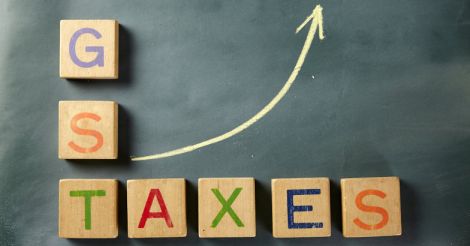After a week of brisk sell-off in anticipation of higher taxes, the first day under the Goods and Services Tax system was a lean day for retailers. Customers did not feel that the GST was a “good, simple tax” as claimed by prime minister Narendra Modi. Prices had indeed gone up along with higher taxes but some products were still selling at the same price despite a fall in taxes.
While some merchants blamed a lack of clarity for not cutting prices, many of them were reluctant to pass on the tax benefit to the consumers. The government could have easily prevented this by bringing out a list of commodities with prices before and after the GST.
City supermarkets were selling old stock at old prices without billing. A supermarket chain with a national presence was selling products at the same price though the bill cited numbers and codes related to the GST.
Mobile phones
Mobile phone stores were deserted on Saturday. No mobile phone manufacturer has dared to increase prices to reflect the higher tax bill - from 5 percent to 12 percent - due to intense competition in the sector. Retailers have been asked to sell phones at the old price.
However, memory cards, pen drives and other accessories have become costlier. Tax on the imported items has been increased from 5 percent to 18 percent. A memory card with a price tag of Rs 300 would carry a tax of Rs 54 now, a spike from the earlier Rs 15.
Gold
Every sovereign of gold will be taxed Rs 400 extra. A sovereign cost Rs 22,000 on Saturday as the tax rate was increased from 1.15 percent to 3 percent. That translates to a jump in tax to Rs 660 from Rs 270.
Many jewelers halted billing until Saturday afternoon as they said they were busy uploading the new software and adjusting for old stock.
 Representational image
Representational imageHome appliances
There were hardly any takers for refrigerators, televisions, washing machines and other home appliances. Anyway, billing was impossible in most of the shops until afternoon. The few customers who turned up had to go back disappointed.
Taxes have gone up on this front too. The previous 26.5 percent tax - including value-added tax of 14.5 percent and excise duty of 12 percent - has been increased to 28 percent.
Traders can expect input tax credit on only 60 percent of the excise duty paid on old stock. Traders who are still left with stocks from the pre-GST days may end up losing some money. Almost 40 percent of small-time retailers are not ready for the switch to the new system yet. They could expect a reprieve for two months at least.
Automobiles
Automobile showrooms were in a holiday mood on Saturday. Most of the old stocks had been sold out and the new stock is yet to arrive. The dealers are waiting for word from manufacturers on the new prices and taxes.
The uncertainty was evident in a car showroom in Thiruvananthapuram, which sent back customers who wanted to book small cars which were expected to be cheaper with the slashing of taxes. The showroom shuttered down in the afternoon as more and more people visited to book cars.
Travel
Tax on air tickets has been increased from 1.5 percent to 1.8 percent. The commission of the travel agencies will be taxed at 18 percent, an increase from the previous 15 percent. However, the tax on tour packages has been slashed from 9 percent to 5 percent.
No one expects the change in taxes to have any bearing on travel demand. Air travel bookings were not affected on Saturday.
The houseboat operators in Alappuzha, however, complained that many of the potential customers had canceled their bookings in favor of Sri Lanka destinations as the GST doubles tax rate to 18 percent.
 Representational image
Representational imageFootwear
The footwear industry is still clueless about the new tax structure. The apprehensions were evident in the small-scale footwear manufacturing hub in Kozhikode district. Some people point to a slide in prices but nobody is clear on future.
Footwear is supposed to be taxed at 18 percent by the GST. Footwear that cost above Rs 500 had carried sales tax of 12 percent, value added tax of 14 percent and a Cess of 2 percent.
The fall in taxes may not be translated into lower prices if there is not a corresponding fall in the cost of raw materials, people in the industry said.
Read more: Updates on GST Rollout | Kerala will benefit from GST, says Thomas Isaac

























 iStock
iStock
